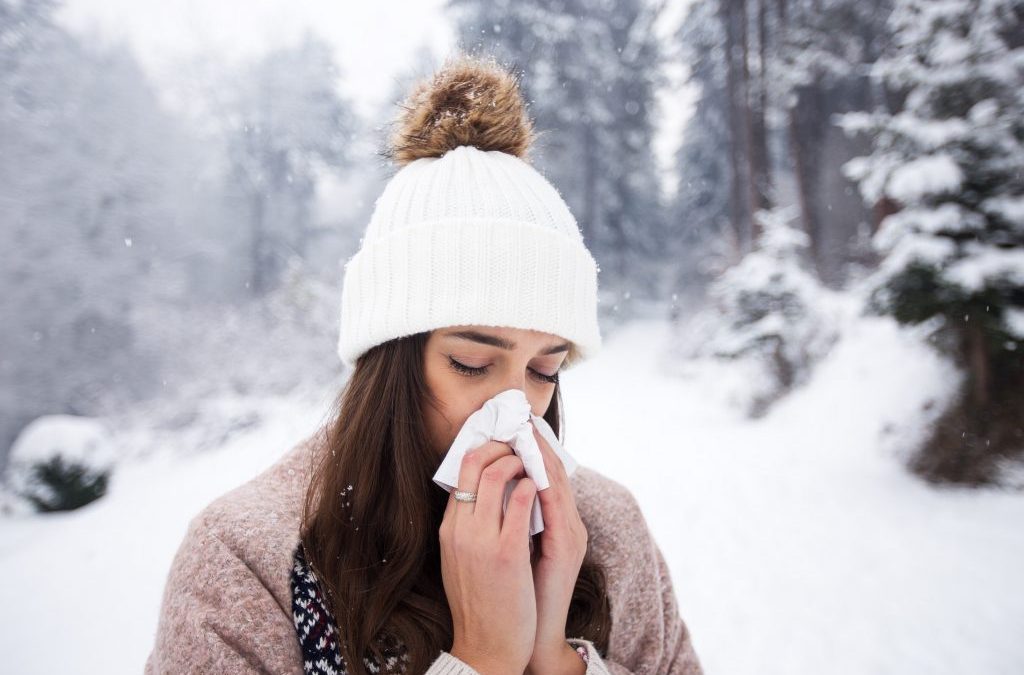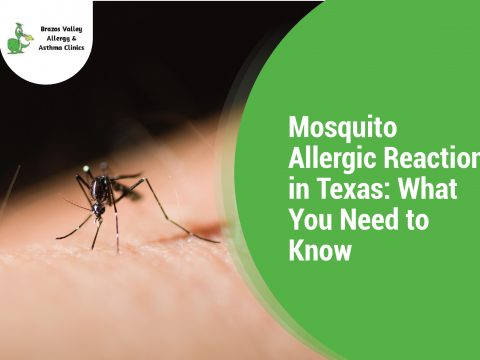- 979-485-9287
- office@bvallergy.com
-
 979-251-7804
979-251-7804
How to Manage Winter Allergies

Is it Allergy vs. Cold? What are the Differences?
November 8, 2019
Things You Must Have In Your Bag If You Have Asthma
January 27, 2020Overview
When the cold weather hits, many of us would just love to lounge around, read a book, and drink a cup of hot chocolate. However, relaxing during the cold months may be difficult for those people who have winter allergies.
During the winter, many people have terrible allergies. You might have to do certain tasks and activities that require being exposed to the cool weather, which can trigger an allergic reaction. Many winter allergens or irritants can result in allergic rhinitis or sometimes called hay fever. This condition occurs when the body’s immune system attacks a certain substance as if it is foreign and dangerous. This overreaction causes nasal inflammation which results in excessive mucus production, nasal congestion, and post-nasal drip.
Winter Allergy Symptoms
Aside from allergic rhinitis, other winter allergy symptoms that might manifest include:
- itchy skin
- sneezing
- sore throat
- swollen and watery eyes
- cough
- headaches
- chest tightness
If you’ve been in any of these situations, I know how it can be an inconvenience.
Ways to Manage Winter Allergies
Even if you don’t go outside, there are also many indoor allergens that could trigger allergic reactions. Some of these allergens include fireplace smoke, molds, pet dander, dust mites, and wool. Even though these irritants are present all year-round, allergies can flare up in winter because you are confined in your home with the windows closed. Furthermore, your home’s furnace may also be circulating different substances through the air once the heat kicks on that might prompt some reaction from you. So what can you do to reduce and manage the symptoms of winter allergies? Here are some tips on how you can make your winter allergy symptoms tolerable this year.
-
-
Use a humidifier to reduce the dryness in the air.
Humid conditions can significantly contribute to an increased level of allergens. High humidity levels are the best environment for most allergens such as dust mites and molds. On the other hand, low humidity levels can cause irritations to the nasal passages and mucous membranes. This is why it is important to have a humidifier to lessen the dryness in the air.
Humidifiers are one of the best tools that can combat allergens and make your life a little easier during winter. Humidifiers help allergies by making the environment non-conducive for allergens to thrive. This is the safest way to eradicate future reactions as well as keep your home environment clean.
-
Clean, dust, and vacuum regularly.
Your home should be your refuge where you can escape external allergens. That’s why it is important that it is clean and habitable. If you have dust allergy, that means that you’re allergic to dust mites. According to the American College of Allergy, Asthma, and Immunology, dust mites are microscopic organisms that feed off of house dust and moisture in the air. To avoid the symptoms of dust allergy, you just have to clean your place at least once a week. If you can do it more often, then that’s even better. Use a dampened cloth or a dust rag in order to capture dust and the mites that feed on it. Using a vacuum with a high-efficiency particulate air (HEPA) filter can also effectively take out dust mites. Focus on your carpets as they can easily house dust mites. Most importantly, do not forget to wear a mask, gloves, and long clothing when you clean your house. They will serve as a barrier between your face and body from the contaminants present in your home.
-
Wash your sheets weekly in hot water.
You must regularly wash your sheets and beddings in hot water. Your room is the most important part of the house that should be allergen-free. It is where you sleep and do other personal activities. Dust mites can live, poop, and die in your bedding which can aggravate your allergies.
When washing your bed sheets, make sure that the water temperature is at least 130 degrees Fahrenheit. If you’re living with a child, then also wash any stuffed animals. If possible, use hypoallergic cases for mattresses and pillows to keep dust mites trapped.
-
Bathe pets once a week to minimize dander.
Bathe your pet frequently with a good pet shampoo that supports healthy skin. It is important to note that if a dog’s skin is dry, more dead skin cells (dander) will accumulate. Also, keep your animals away from your bedroom or anyone in the house who has allergies.
-
Final Thoughts
Winter allergies can be quite a hassle especially when you have other important tasks to accomplish during the cold months. However, if you follow the tips we provided, then you can reduce the symptoms of your allergies and enjoy the rest of winter. If you’re looking for an allergy clinic in the Brazos Valley region, Dr. Paul Jantzi can help you. He is board-certified in allergy and immunology with prior specialty training in pediatrics and internal medicine. Schedule an appointment now.




